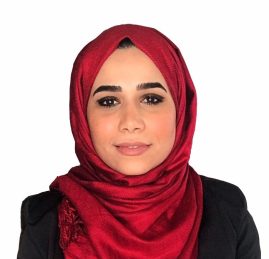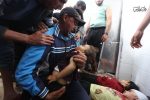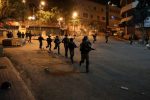As the world celebrates International Women’s Day today, hundreds of thousands of Palestinian women are still facing a deadly fate amid Israel’s continued war on Gaza.
Of the more than 30,000 people who have been killed so far, 9000 of them are women. Additionally, women make up 75 percent of the 72,156 individuals wounded, as reported by the Palestinian Central Bureau of Statistics (PCBS).
Those who have survived are grappling with displacement, a scarcity of essential goods, childcare responsibilities, and a lack of access to sexual and reproductive health services.
According to the international NGO ActionAid, Gaza has become one of the most dangerous environments for women and girls who are experiencing “unprecedented levels” of violence. More than three women and girls are reportedly killed every hour.
“Every day is a desperate struggle for them to meet their most basic needs. For months, this nightmare has dragged on, leaving women and girls in Gaza wondering why the world has abandoned them,” said Riham Jafari, the communication and advocacy coordinator at ActionAid Palestine.
Women in Gaza have voiced complaints about the absence of sanitary pads in humanitarian aid packages. Consequently, some women resorted to cutting up baby diapers to use as makeshift pads during their menstrual periods. Others mentioned using pieces of cloth as an alternative.
Recently, a group of women in Rafah, southern Gaza, started a workshop in which they sew sanitary pads using scraps of tents provided by humanitarian organizations.
Mothers suffering
The United Nations said that there were approximately 50,000 pregnant women in the already besieged enclave when the war started. It is reported that around 183 women give birth every day, with 15 percent of them experiencing some form of complications.
UN experts have expressed alarm over credible reports of severe human rights violations against Palestinian women and girls in the West Bank and Gaza Strip
The British charity Oxfam has also noted a nearly 30 percent rise in premature births among women, attributed to stress and trauma. Some women opted for abortions due to fear, resulting in a 300 percent increase in abortion cases, according to the international humanitarian agency Care.
Amidst the challenges of starvation, severe hostility, and the looming threat of death and disease, there have been accounts of women going through labor and delivery without any medical assistance.
Women gave birth in tents, while others delivered in toilets with the help of other untrained women. Reports described Gazan women being subjected to cesarean sections without anesthesia.
Pregnant women no longer have access to health services. They say they rely on the movement of their unborn babies inside their wombs to make sure they are still alive. Access to essential vitamins, minerals, and necessary medication is unavailable.
The UN says the count of households led by widowed women tasked with the sole responsibility of nourishing, safeguarding, and supporting their families may have risen significantly by around 3,000.
This increase is attributed to the loss of men across Gaza due to fatalities, which may have also led to approximately 10,000 children being deprived of their fathers. Euro-Med Human Rights Monitor has reported that more than 24,000 children may have lost their parents.
Human rights abuses
Last month, UN experts expressed alarm over credible reports of severe human rights abuses endured by Palestinian women and girls in the Gaza Strip and the West Bank.
“We are shocked by reports of the deliberate targeting and extrajudicial killing of Palestinian women and children in places where they sought refuge or while fleeing. Some of them were reportedly holding white pieces of cloth when the Israeli army or affiliated forces killed them,” the experts said.
The report was under covered by international media that many times highlighted the sexual abuse allegations against Israeli women on 7 October, even before the UN released its report about the case.
A Palestinian woman told this journalist that an Israeli soldier threatened to rape her if she resisted her arbitrary arrest. On the way to the Damon Prison in Haifa, the woman said she was subjected to beating and humiliation while handcuffed.
“My parents told me not to say I was subjected to rape threats because it is taboo in our society,” she explained.
Women in Gaza say that the constant bombardment has left their children traumatized and that they have to deal with many added burdens since the war started.
“My child asks for a lot of things he used to have easily before the war, but now I cannot afford or find everything he wants, even if it’s just a piece of chocolate,” said Hanan Abdul Karim, who is now sheltering in Rafah.
Palestinian blogger Bisan Owda posted a photo on her Instagram page showing some of her cut hair, which she had to shorten so she could wash it.
“Today, I cut a lot of my hair because it was damaged due to the lack of clean water and hair care products that I could not carry from my beautiful room,” she wrote.
-Abeer Ayyoub is a Palestinian journalist from Gaza. She has worked as a freelance journalist there for five years, before moving to the UK for an academic fellowship at Oxford University. She is currently based in Amman where she is studying new media in a Master’s degree program. Her article appeared in the Middle East Eye.












